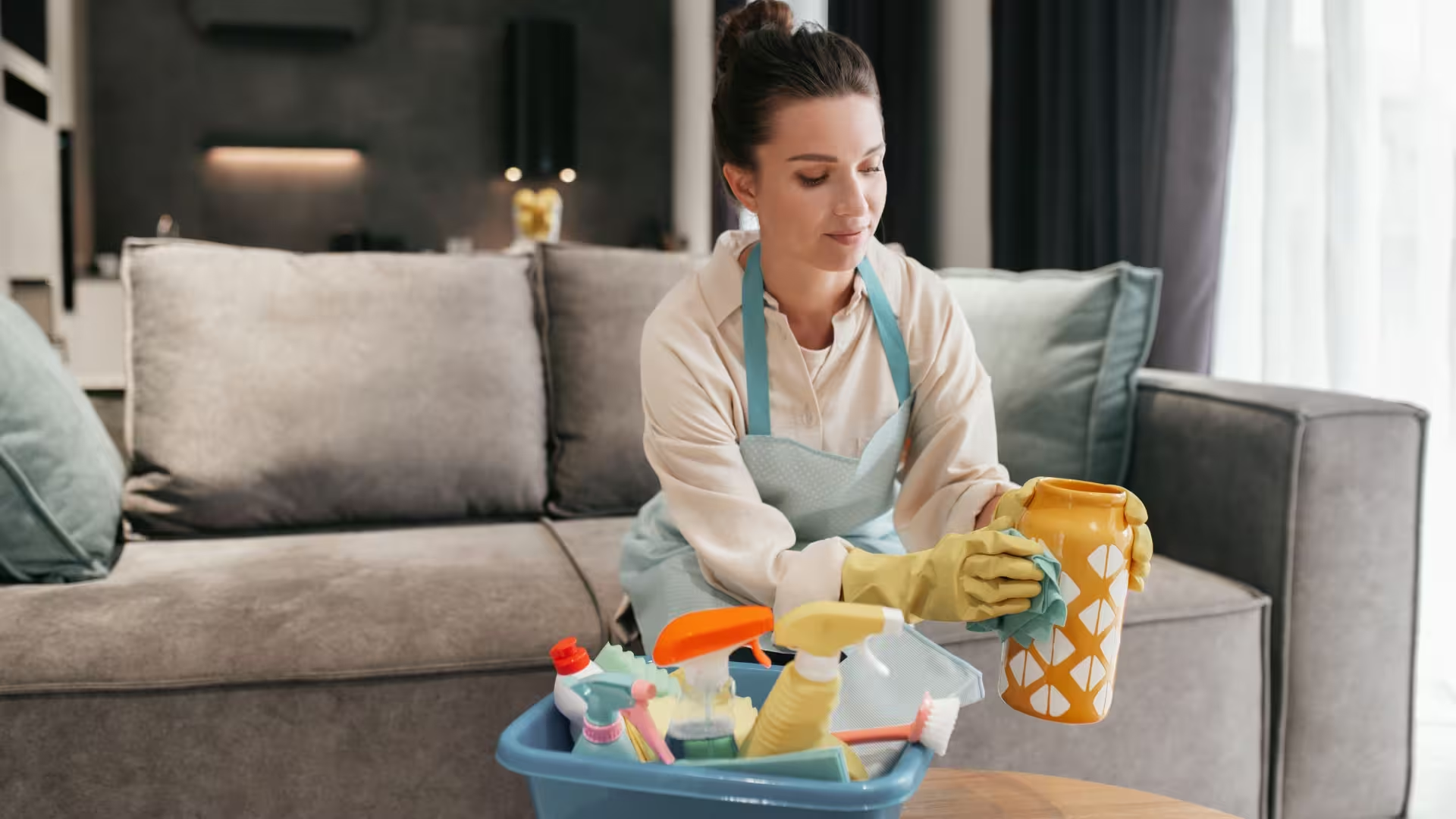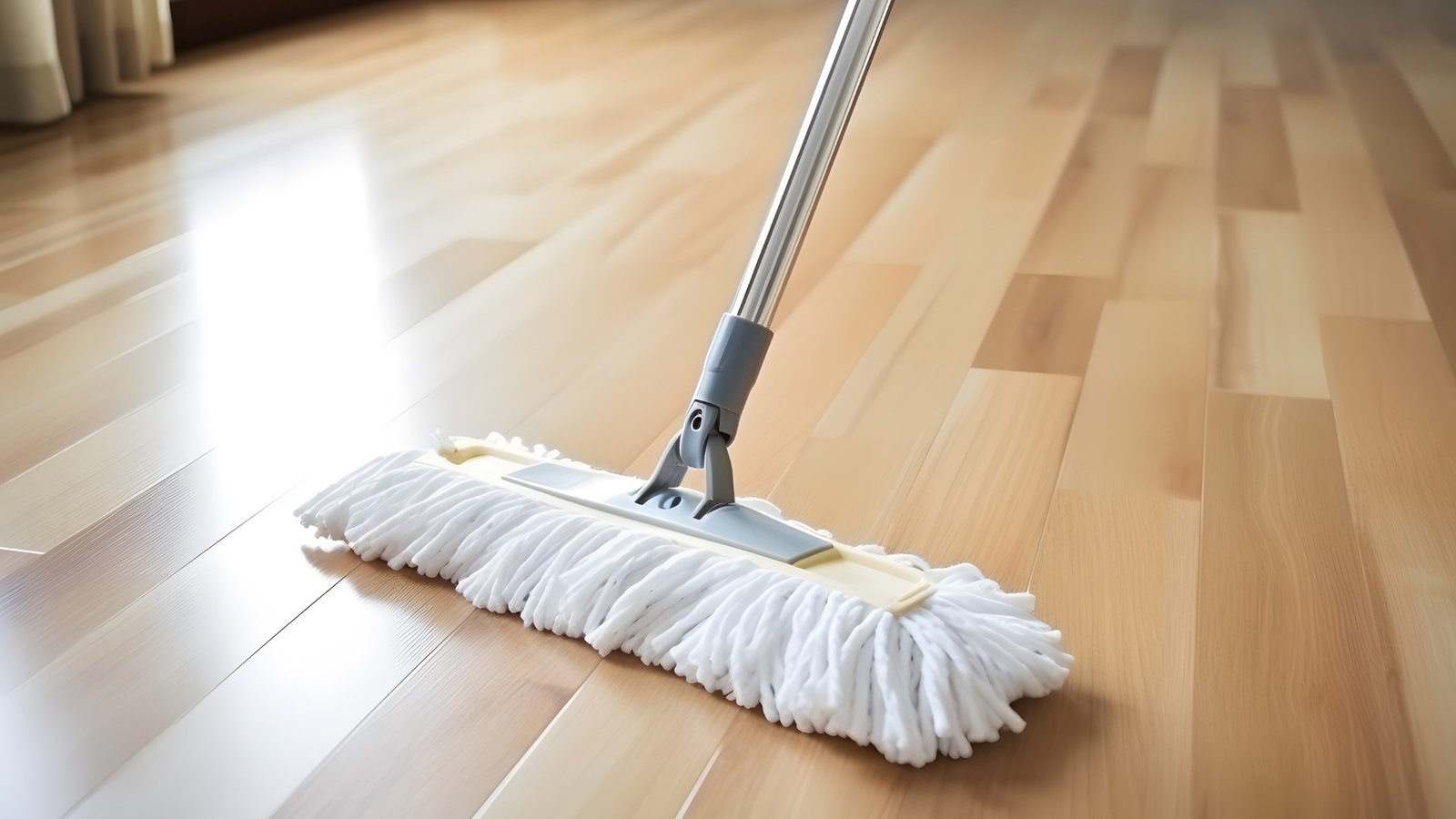In today’s fast-paced world, maintaining a clean and organized living space is often overlooked. However, a tidy home goes beyond just appearances – it plays a significant role in our overall health and well-being. In this article, we will explore seven compelling reasons why a clean house is essential for your physical and mental well-being.
First and foremost, a clean house helps to eliminate allergens and improve indoor air quality. By regularly dusting, vacuuming and mopping, you can minimize the presence of dust mites, pet dander and other common allergens that can trigger respiratory issues and allergies.
Secondly, a clean home promotes good hygiene and reduces the spread of germs and bacteria. Regular cleaning and disinfecting surfaces, such as kitchen countertops and bathroom fixtures, can help prevent the transmission of harmful pathogens.
Furthermore, living in a cluttered and disorganized space has been linked to increased stress levels and decreased productivity. A clean and organized home creates a calming environment that can positively impact your mental well-being and allow for greater focus and relaxation.
These are just a few of the reasons why keeping a clean house is crucial for your health and overall well-being. Let’s dive deeper into each of these benefits and discover how to maintain a clean and healthy home for you and your loved ones.
Table of Contents
1. Dust and allergens: The impact on your health
Dust and allergens are often invisible culprits that can significantly affect your health. When your home is cluttered and unclean, it becomes a breeding ground for dust mites, pet dander, mold spores and other allergens. These tiny particles can easily become airborne and inhaled, leading to respiratory issues such as asthma, allergies and other chronic conditions. Regular cleaning can drastically reduce the number of allergens present in your home, making it a healthier environment for you and your family.
The process of dusting, vacuuming and maintaining cleanliness in your home doesn’t just improve the aesthetic appeal; it actively contributes to your physical well-being. For example, using a high-efficiency particulate air (HEPA) filter in your vacuum can trap smaller particles that traditional vacuums might miss. By focusing on these hidden allergens, you can create a space that is not only clean but also safe for your respiratory health. When you breathe easier, your overall energy levels and day-to-day functioning can improve dramatically.

Moreover, the impact of allergens extends beyond just physical health. Many individuals experience heightened anxiety and stress when surrounded by a dusty or cluttered environment. The sensation of having clean air to breathe can enhance your mood and create a more serene living space. This connection between a clean environment and mental clarity is vital; breathing in clean air can help reduce feelings of lethargy and irritability, allowing you to enjoy your home to its fullest potential.
2. Mold and mildew: The dangers of a dirty house
Mold and mildew are two of the most concerning issues that can arise from neglecting cleanliness in your home. These fungi thrive in damp, dark environments and can pose serious health risks if left unchecked. Exposure to mold and mildew can lead to a range of health complications, from respiratory problems and allergic reactions to more severe conditions such as chronic sinusitis and lung infections. Maintaining a clean and dry home is essential in preventing these harmful growths from taking root.
The presence of mold can often go unnoticed until it has proliferated, which is why regular inspections and cleanings are crucial. Areas like bathrooms, kitchens and basements are particularly susceptible to moisture and should be monitored closely. Using dehumidifiers and ensuring proper ventilation can help keep these areas dry, while routine cleaning can eliminate any initial signs of mold before they escalate into larger issues. Additionally, addressing any leaks or sources of water damage promptly can save you from costly repairs and health risks down the line.
In addition to physical health risks, the presence of mold and mildew can also take a toll on your mental well-being. The anxiety associated with an unhealthy living environment can lead to feelings of unease and discomfort at home. Creating a clean, dry space not only protects your physical health but also promotes a sense of safety and comfort, enhancing your overall quality of life. By prioritizing cleanliness, you can significantly reduce the chances of mold and mildew infiltrating your home, ensuring a healthier living space for you and your loved ones.
3. Cleaning for mental well-being: The psychological benefits
The act of cleaning can have profound psychological benefits that extend far beyond the physical cleanliness of your home. Many studies have shown that a tidy and organized space can lead to increased feelings of calm and control. When your environment is clean, it creates a sense of order that can translate into improved mental clarity and focus. The psychological effects of a messy space often manifest as stress or anxiety, making it difficult for individuals to relax or concentrate on tasks at hand.
Cleaning also serves as a form of mindfulness practice. Engaging in cleaning activities allows you to focus on the present moment, redirecting your thoughts away from stressors and anxieties. The repetitive motions involved in cleaning—whether it’s sweeping, dusting or organizing—can provide a meditative effect, helping to ground you in the here and now. As you see the immediate impact of your efforts, you may also experience a sense of accomplishment and satisfaction, further boosting your mood.
Additionally, a clean environment can promote social interactions and a sense of community. People are generally more inclined to invite friends and family over to a tidy home and this social engagement has its own set of mental health benefits. The feeling of connection and support from loved ones can enhance your overall well-being. By maintaining a clean house, you create an inviting atmosphere that encourages social interactions, ultimately fostering stronger relationships and a more robust support network.
4. The link between cleanliness and physical health
The correlation between cleanliness and physical health is well-established, with numerous studies highlighting how a clean environment can reduce the risk of illness. A clean house minimizes the presence of harmful pathogens, bacteria and viruses that can easily spread among occupants. Regular cleaning routines, including disinfecting high-touch surfaces like doorknobs, light switches and countertops, can significantly lower the chances of contracting infections and illnesses.
Moreover, maintaining cleanliness can also have a preventative effect on chronic conditions. For instance, a clean kitchen encourages healthier eating habits by making it easier to prepare fresh meals and ensuring that food preparation areas are sanitary. This, in turn, can lead to better nutrition and a reduced risk of obesity, diabetes and heart disease. The benefits of cleanliness extend beyond mere aesthetics; they play a vital role in promoting a healthier lifestyle.

Furthermore, the act of cleaning itself can be a form of physical exercise. Engaging in activities such as vacuuming, scrubbing or gardening can elevate your heart rate and contribute to overall physical fitness. Incorporating cleaning into your daily routine not only leads to a more organized home but also serves as a practical way to stay active. By recognizing the link between cleanliness and physical health, you can take proactive steps to create a living space that supports your well-being in multiple ways.
5. Improved sleep quality: How a clean house can help you sleep better
Sleep quality is one of the most critical aspects of overall health and a clean house can significantly contribute to better sleep. A tidy, organized environment can promote relaxation and create a peaceful atmosphere conducive to rest. When your bedroom is clutter-free, it can feel more like a sanctuary, allowing your mind to unwind and prepare for sleep. In contrast, a messy space can lead to distractions and a heightened sense of anxiety, making it difficult to fall asleep.
Additionally, cleanliness directly impacts the quality of your sleep in terms of allergens and pollutants. A clean environment reduces the presence of dust mites, pet dander and other irritants that can disrupt sleep and trigger allergic reactions. Maintaining proper air quality through regular cleaning can help you breathe more easily at night, which is essential for a restful sleep. By ensuring that your sleeping area is free from allergens and pollutants, you create a healthier environment that promotes restorative sleep.
Moreover, establishing a routine that includes cleaning can signal to your brain that it’s time to wind down. Engaging in light cleaning or organizing before bedtime can help you feel accomplished, allowing you to transition into a restful mindset. Coupling this with a clean environment can enhance relaxation, making it easier to drift off to sleep. By prioritizing a clean house, you invest in your sleep quality, leading to improved overall health and well-being.
6. Productivity and focus: How a clean environment enhances your well-being
A clean and organized environment can dramatically enhance your productivity and focus. When your workspace is cluttered, it can be challenging to concentrate on tasks, leading to decreased efficiency and increased frustration. In contrast, a tidy space allows for clearer thinking and better organization of thoughts, enabling you to tackle tasks more effectively. By creating a clean work environment, you set yourself up for success, fostering a mindset that promotes productivity and achievement.
Furthermore, the act of cleaning itself can serve as a motivational boost. Completing a cleaning task can create a sense of accomplishment that translates into positive momentum for other activities. When you see the immediate results of your efforts, it can inspire you to take on additional tasks, whether they be related to work, personal projects or home upkeep. This cycle of achievement can lead to increased motivation and a more positive outlook on your responsibilities.
Additionally, a clean environment can minimize distractions, allowing you to focus on what truly matters. The clarity that comes from an organized space can help you prioritize tasks and allocate your time more efficiently. By reducing the mental clutter that often accompanies a messy workspace, you can enhance your ability to think critically and creatively. Ultimately, maintaining a clean home can lead to greater productivity and focus, positively impacting all areas of your life.
7. Cleaning as a form of self-care: The therapeutic benefits
Cleaning can be more than just a chore; it can be a form of self-care that nurtures both your physical and mental well-being. Engaging in cleaning activities allows you to take control of your environment, providing a sense of agency and empowerment. The act of caring for your space can foster feelings of pride and satisfaction, promoting a positive self-image and a healthy mindset.
Moreover, cleaning can serve as a therapeutic outlet for stress and anxiety. The physical activity involved in cleaning can release endorphins, which are known to improve mood and alleviate feelings of tension. Many people find that the process of cleaning helps them to think more clearly, providing a mental break from the chaos of daily life. This release can be especially beneficial during challenging times, allowing you to channel your energy into a productive activity that enhances your living space.
Additionally, making cleaning a regular part of your self-care routine can create a sense of stability and predictability in your life. Establishing a cleaning schedule can help you maintain order and organization, fostering a calming environment that contributes to your overall well-being. By viewing cleaning as a form of self-care rather than a burdensome task, you can unlock the therapeutic benefits of a clean home, enhancing both your physical surroundings and your mental health.
8. Tips for maintaining a clean and healthy home
Maintaining a clean and healthy home doesn’t have to be an overwhelming task. One effective strategy is to establish a regular cleaning routine that breaks down tasks into manageable segments. For instance, you can designate specific days for vacuuming, dusting and disinfecting various areas of your home. By spreading out cleaning tasks throughout the week, you can avoid the stress of last-minute cleaning before guests arrive and keep your space consistently tidy.
Another helpful tip is to declutter regularly. Clutter can accumulate quickly, making it challenging to maintain a clean environment. Take time to evaluate items in your home and determine what you truly need. Implementing the “one in, one out” rule can also be effective; for every new item you bring into your home, consider donating or discarding an old one. This practice not only helps to keep your space organized but also creates a more peaceful living environment.

Finally, involve the whole family in the cleaning process. Assign age-appropriate chores to children and encourage teamwork when tackling larger cleaning tasks. Creating a family cleaning schedule can foster a sense of responsibility and pride in maintaining a clean home. By working together, you can cultivate a shared commitment to cleanliness and ensure that everyone feels invested in creating a healthy living space.
Conclusion: The overall impact of a clean house on your health and well-being
In conclusion, the importance of maintaining a clean house extends far beyond aesthetics; it plays a crucial role in supporting your overall health and well-being. From reducing allergens and preventing mold to enhancing sleep quality and productivity, a clean environment creates a foundation for a healthier lifestyle. The psychological benefits of a tidy space further enhance your mental clarity, making it easier to navigate the challenges of daily life.
By recognizing the profound impact that cleanliness can have on your physical and mental health, you can take proactive steps to create a more inviting and nurturing living space. Whether through establishing a cleaning routine, involving family members or viewing cleaning as a form of self-care, the choices you make can lead to a healthier home environment. Ultimately, prioritizing cleanliness is an investment in your well-being, fostering a sense of peace and balance in your life. Embrace the journey of maintaining a clean house and reap the countless rewards it brings to your overall health and happiness.









